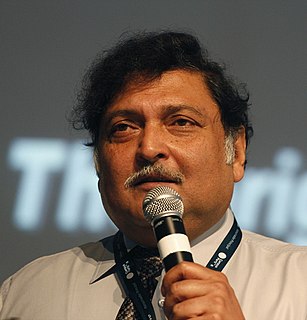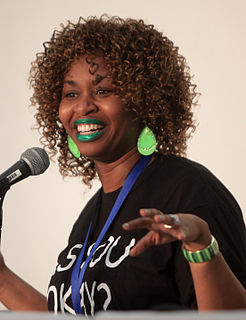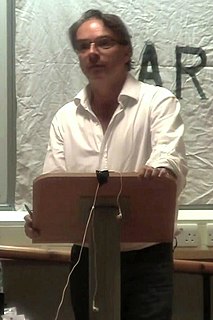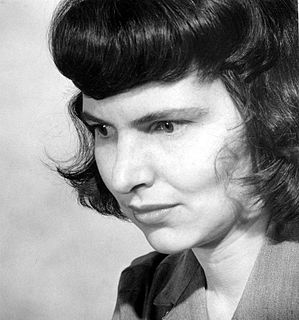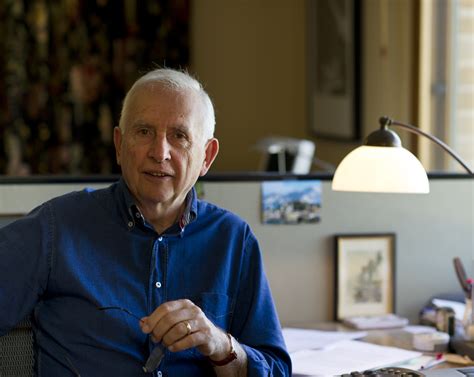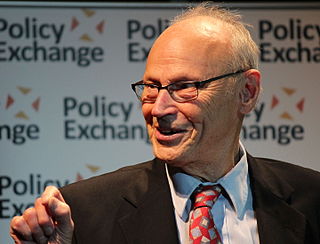Top 1200 Computer Literacy Quotes & Sayings
Explore popular Computer Literacy quotes.
Last updated on April 14, 2025.
Financial literacy is not an end in itself, but a step-by-step process. It begins in childhood and continues throughout a person's life all the way to retirement. Instilling the financial-literacy message in children is especially important, because they will carry it for the rest of their lives. The results of the survey are very encouraging, and we want to do our part to make sure all children develop and strengthen their financial-literacy skills.
What, then, is the basic difference between today's computer and an intelligent being? It is that the computer can be made to seebut not to perceive. What matters here is not that the computer is without consciousness but that thus far it is incapable of the spontaneous grasp of pattern--a capacity essential to perception and intelligence.
Computer literacy is a contact with the activity of computing deep enough to
make the computational equivalent of reading and writing fluent and enjoyable.
As in all the arts, a romance with the material must be well under way. If
we value the lifelong learning of arts and letters as a springboard for
personal and societal growth, should any less effort be spent to make computing
a part of our lives?
The link between literacy and revolutions is a well-known historical phenomenon. The three great revolutions of modern European history -- the English, the French and the Russian -- all took place in societies where the rate of literacy was approaching 50 per cent. Literacy had a profound effect on the peasant mind and community. It promotes abstract thought and enables the peasant to master new skills and technologies, Which in turn helps him to accept the concept of progress that fuels change in the modern world.
It is my vision that we all will dedicate the next decade to achieve universal literacy and education for all children, especially for girls. More than 145 million of the world's children are deprived of education due to poverty, exploitation, slavery, gender discrimination, religious extremism, and corrupt governments. May Three Cups of Tea be a catalyst to bring the gift of literacy to each of those children who deserves a chance to go to school.
Literacy is a bridge from misery to hope. It is a tool for daily life in modern society. It is a bulwark against poverty, and a building block of development... For everyone, everywhere, literacy is, along with education in general, a basic human right.... Literacy is, finally, the road to human progress and the means through which every man, woman and child can realize his or her full potential.
During the Jim Crow era, poll taxes and literacy tests kept the African-Americans from polls. But today, felon disenfranchisement laws accomplished what poll taxes and literacy tests ultimately could not, because those laws were struck down. But felony disenfranchisement laws had been allowed to stand.
I've never been much of a computer guy at least in terms of playing with computers. Actually until I was about 11 I didn't use a computer for preparing for games at all. Now, obviously, the computer is an important tool for me preparing for my games. I analyze when I'm on the computer, either my games or my opponents. But mostly my own.
There?s a clear and strong connection between fertility reduction and women?s literacy and empowerment, including women?s gainful employment. If you look at the more than 300 districts of India, the strongest influences in explaining fertility variations are women?s literacy and gainful economic employment.
If you look at literacy tests in the South, for example, they were absurdly difficult and didn't measure literacy. They were simply measuring whether or not you were black. So at every moment when we've said, hey, we don't want certain people to vote because they are not educated enough, it is often simply become a way of excluding black and brown people.
When I use a direct manipulation system whether for text editing, drawing pictures, or creating and playing games I do think of myself not as using a computer but as doing the particular task. The computer is, in effect, invisible. The point cannot be overstressed: make the computer system invisible.
What is the central core of the subject [computer science]? What is it that distinguishes it from the separate subjects with which it is related? What is the linking thread which gathers these disparate branches into a single discipline. My answer to these questions is simple -it is the art of programming a computer. It is the art of designing efficient and elegant methods of getting a computer to solve problems, theoretical or practical, small or large, simple or complex. It is the art of translating this design into an effective and accurate computer program.
In Selma, Alabama, in 1965, only 2.1 percent of blacks of voting age were registered to vote. The only place you could attempt to register was to go down to the courthouse. You had to pass a so-called literacy test. And they would tell people over and over again that they didn't or couldn't pass the literacy test.
At the 1894 ALA conference it was fairly well agreed that the primary goal of the public library must be to teach good citizenship. Libraries recognized that such "Americanization" could be achieved through literacy. Thus, teaching immigrants to read was not just a benefit in and of itself; literacy would also serve the interests of democracy.
Literacy is part of everyday social practice - it mediates all aspects of everyday life. Literacy is always part of something else - we are always doing something with it. Its what we choose to do with it that is important. There are a range of contemporary literacies available to us - while print literacy was the first mass media, it is now one of the mass media.







